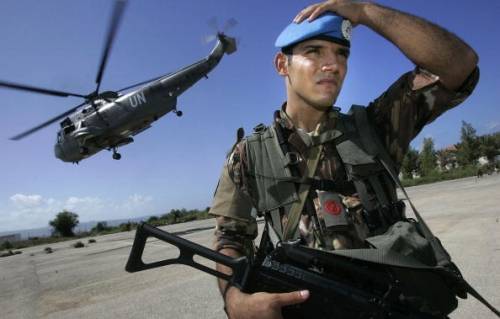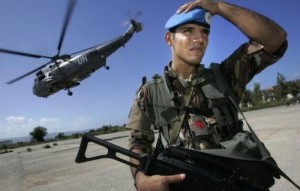
The Intervention Dilemma
 The international community is taking note of the ongoing situation in Syria and the calls for humanitarian intervention will continue until the situation has been properly resolved. There are two out of many sides to the debate over intervention that is worth mentioning.
The international community is taking note of the ongoing situation in Syria and the calls for humanitarian intervention will continue until the situation has been properly resolved. There are two out of many sides to the debate over intervention that is worth mentioning.
One force behind promoting intervention is the idea of responsibility to protect or R2P. R2P was an idea that was adopted by the UN general assembly in 2005. R2P is the idea that in each state’s right to sovereignty, it has the responsibility to protect their own people from “genocide, war crimes, ethnic cleansing and crimes against humanity”. However, if the state fails to do so, it falls on the international community to protect those people. The international community is called to maintain international peace and security and according to proponents, R2P falls under this calling. R2P states that diplomatic, humanitarian and peaceful means must be exhausted before military intervention. R2P was offered as justification for the international community’s actions in Libya.
On the other hand, there are those who prefer not to maintain a particular intervention strategy. By not establishing a particular limit before intervention occurs, it provides flexibility for the international community and keeps those threatened by intervention on their toes. Creating a line under which the situation is acceptable to the international community and above which intervention is necessary can be dangerous. This line gives those groups or states that are perpetrating deadly actions room to operate. Furthermore, they will do their best to remain below the threshold while continuing their activities. Instead of maintaining a specific intervention strategy, intervention would be determined on a case-by-case basis. Opponents to this strategy would state that intervention would then be based on political self-interests of the decision makers.
The intent of this post is not to advocate for one position but to rather inform the public about the different viewpoints towards intervention. Both position have both their own merits and faults and these are not the only approaches to intervention. Humanitarian intervention is a valuable tool for the international community and it is a tool that should be used wisely. If it is not used judiciously, the impact and threat of intervention is lessened. Unfortunately, Syria will likely not be the last situation where the decision to intervene or not intervene is debated.





